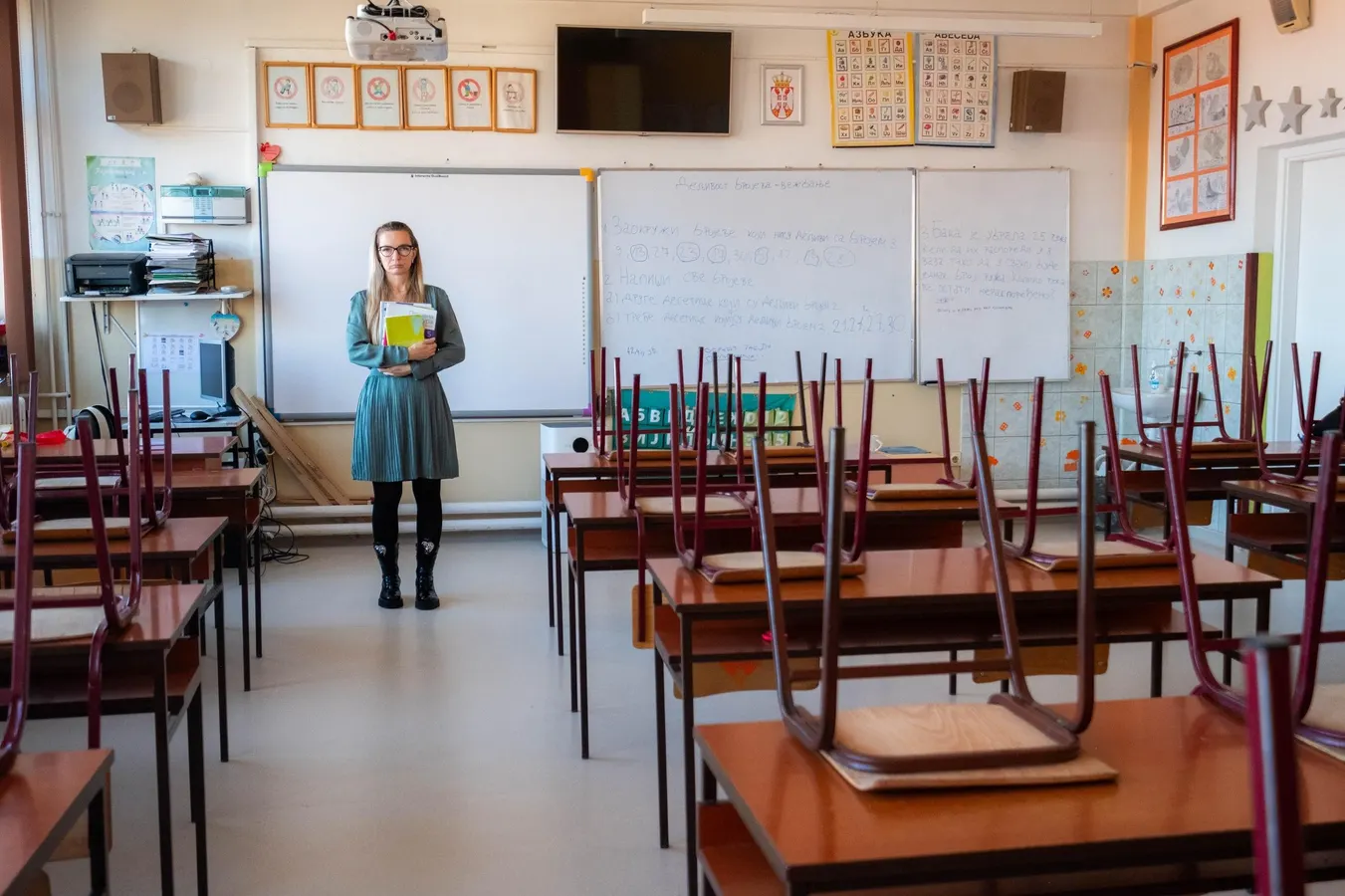By Nadine M. Kalin,Peter Greene,Senior Contributor
Copyright forbes

The culture wars have been raging for several years, with public school educators caught on the front lines–often before they even realize what is happening. Many of those stories have been covered by journalists, but the book Trouble In Censorville features educators who tell their own stories.
The book was edited by Nadine M. Kalin (University of North Texas) and Rebekah Modrak (University of Michigan), art educators. It features essays from fourteen educators who found themselves engaged in battles over critical race theory, LGBTQ identities, and book bans.
In their first chapter, Kalin and Modrak point out that these sorts of cultural debates, conflicts, and attacks on public education are not new in this country. “It did not begin with Trump.” Their timeline runs all the way back to Reconstruction and the establishment of public schools in the South, and up through such moments as the “Lavender Scare” of 1953. We have been here before, argue the authors. However, the first-person stories in this volume show how this wave looked as hit schools over the last six years.
Certain themes appear through the fourteen stories.
None of these educators went looking for trouble. They were doing their jobs, in some cases exactly as they had for years before, when they found themselves in a new political landscape where they were targeted. As Mike Johnson puts it, “While we were giving their kids the best possible education, they were focusing on spewing nonsense and whipping up peoples’ fears.” Says another, “I wasn’t even aware of this right-wing culture war against critical race theory.” New Jersey librarian Elissa Malespina had no inkling there was a problem until her end of year meeting when she was told she would not be back for the next year.*
Many showed a misplaced faith in the professional norms they followed. When librarian Gavin Downing recounts his attempts to explain policies, procedures, the law, and his professional judgment to his district administration when they seek to remove certain books, one wants to reach back from late 2025 to warn him that this is not going to work.
MORE FOR YOU
Some of these educators faced challenges because of their own identity. Monica Coles was placed on leave after four days in the classroom. “My kids loved me, and the principal told me I was doing a great job, but because I used a nontraditional pronoun and wore insufficiently ‘feminine’ attire– khakis and a button up shirt– I had to go.”
Many of the educators are caught flatfooted, shocked to find out that they are the subject of a virulent social media campaign. Melissa Grandi Statz’s discovers that she is the object of an entire Facebook page devoted to getting her, a “rogue teacher,” fired. “I couldn’t believe the things people I’ve known my entire life were saying about me,” she writes. Calling teachers names like “groomer” and “pedophile” may seem unfortunately commonplace today, but many of these essays capture the shock and surprise of being on the receiving end of such charges for the first time in an otherwise successful career.
The essays highlight the difference between district administrators who back their educators and those that try to lay low and look for the path of least resistance. When administrators stand up for their staff, conflict is dampened, even channeled into productive conversation. As several of these essays show, when administrators do not stand up, the attacks only become worse.
A variety of positions are represented from across the country. Matthew D. Hawn was the first tenured teacher in Tennessee to be dismissed. Jill James was a seventh grade Language arts teacher in rural New England. Willie Edward Taylor Carver, Jr., the 2022 Kentucky Teacher of the Year, was harassed for being gay and advising an LGBTQ+-affirming student group. Julie Miller was removed from her post as librarian in a Florida high school when she pushed back against book bans.
Trouble in Censorville was published in 2024, the essays completed before the elections, so the work benefits from existing before the rhetoric surrounding these issues became even more heated.
If you want to know what the attacks on CRT, “divisive issues,” and reading materials have felt like from the inside of a school, or simply want a more complete view of how these culture wars have unfolded in education, there’s much to learn from this book. There’s no telling how many untold stories are represented by these fourteen. As Kalin and Modrak write, “It’s crucial, we feel, to acknowledge those who, for myriad reasons, did not feel safe sharing their stories.”
Editorial StandardsReprints & Permissions



